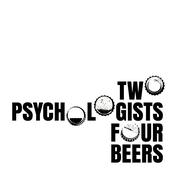This is a re-release of Episode 95, which was recorded in September 2023.
Paul Bloom joins Yoel and Alexa to talk about the glamour and humiliation of teaching psychology at the college level. They discuss how they've changed their approaches to teaching over the years, and whether they've become more skilled or more out of touch (or both). Alexa shares her experiences teaching about morality and evolution to a predominantly Christian student body, Yoel laments the fact that his students aren't more disagreeable, and Paul claims that critical thinking is overrated. In an era of increasing remote instruction, they claim that online courses can't do what they do. But, only Yik Yak knows for sure.
Special Guest: Paul Bloom.



